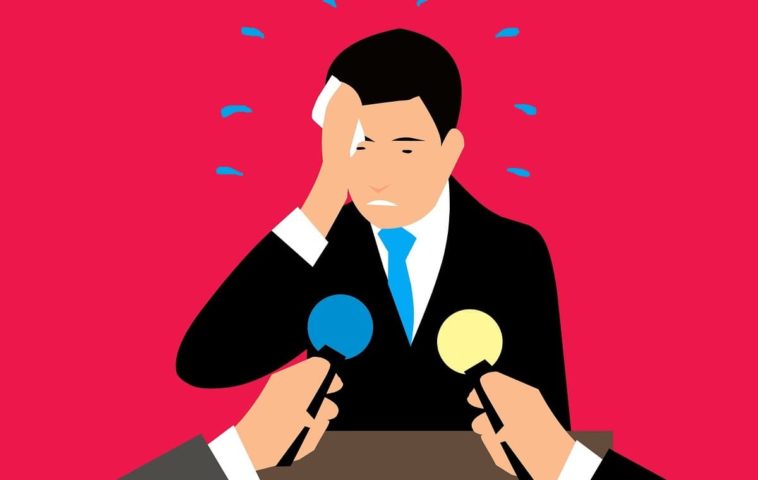More often than not, you have to deal with situations that cause immense stress. Here is how you can manage it in 5 easy steps.
Introduction
Just like me, you also may be one of those people who have a hard time dealing with stress, especially when your stress levels are not proportional to the cause, such as: when talking to the cashier, raising your hand at school, or other seemingly unimportant daily activities.
It might not sound like an issue to most people, but it’s a rather unpleasant one and, it can bring you down to your knees and decrease the quality of your life. You see, life is full of events and random occurrences and if you cannot deal with them in a healthy way, you’re going to be physically and mentally overwhelmed. Hence, the need to successfully manage stress and improve your routine.
What is stress, and why do you need it?
Stress, in general, is psychological and physiological distress caused by hormones (cortisol) released into your bloodstream by your adrenal glands under certain external events. Back in the “wild days”, it was used to make a person aware of the immediate danger and force the infamous fight-or-flight response to flee from the scene or fight that particular threat.
Though it was a useful tool back then, we still experience it even though in most cases we don’t need to (e.g. when watching scary TV shows or playing video games). It’s a feeling that nobody wants to experience often, but it happens, and it’s absolutely normal. In some cases, it can save your life, and I would prefer it if people wouldn’t see it in such a negative way because it’s still needed.
What is anxiety?
Not to be confused with stress, although they are closely related. Anxiety is more like a long-term state of a “stressful mind” due to internal causes that can have an external origin. For example, the lingering thoughts of a stressful experience that keeps causing you discomfort after a considerable amount of time, can be classified as anxiety.
The symptoms of anxiety can be overwhelming and similar to stress, but the way of dealing with anxiety requires a slightly different approach.
What are the problematic aspects of stress?
As I mentioned earlier in my examples, people can experience severe stress just by talking to other people or watching TV, and that in itself is problematic and needs fixing. High levels of stress on a daily basis can have long-term effects on our body and mind (headaches, insomnia, appetite, fatigue, impotence, nervousness, and even cancer). Perhaps being “oversensitive” to stress is something that cannot be dealt with, but we can at least try to manage it in a healthy and constructive way, and even prevent it from happening.
Though I have studied the subject from a personal interest, I am not a licensed expert and, you should take my recommendations only as friendly advice. Having set that to the side, here is what helped me deal with stressful situations in my daily life:
5 ways of dealing with stress:
1. Identify the cause
This is the first and most important point. It should adequately provide you with a great understanding of your own stress triggers, and consequently their resolve. I have realized that stress originates only from actions, decisions, events, or interactions with people that are important to us. Those can be anything, but the important thing is to follow a logical path of reasoning in order to precisely understand what’s causing your discomfort and why it has such an impact on you. In those instances, distance yourself from the situation and ask those questions:
“What is causing me discomfort?”
“What do I fear the most?”
“Are my thoughts and feelings justified?”
“What can I do if my fears come true?”
Just by asking those questions yourself, you are already paving the way to the solution of your problem. Your mind has become logical against those stress triggers and now you’re ready to be productive. You are already feeling better as you are no longer dealing with the unknown. After clearing the first step, you can move on to the next one.
2. Contemplate the solution
Once you pinpoint the root cause, you move on to processing the data you just obtained. Here, it’s imperative to consider all the elements and details that encompass the core of the problem and concentrate on “what” and “why” it caused you distress. Be careful, though, overthinking will cause the opposite effect and make you even more stressed.
After completing this step, you have all the information you need to perform your “counterattack” and finally assess if your mental anguish was justified. You now know everything about the cause and how to deal with it.
3. Execute your plan
You have the situation under control now, and it’s time for action. You are already feeling calmer and are subconsciously still thinking of ways to solve it. Whether you’ve made a good decision, is to be seen. However, by having a calm mind and reducing your stress hormones, most likely, you’ve made the right one.
So, stick to your resolve and see how it plays out. And if you want to be even more relieved, have plan B and plan C ready just in case. I can guarantee you that alternatives can make you much calmer.
4. Plan ahead
This step consists of planning about the things you can and can’t control.
If the problem has a solution, you are going to start planning your actions most efficiently and optimally to make sure that you eliminate that problem before it even happens, and achieve the comfort you are seeking. This could be a bill that needs to be paid, a class to pass, a relationship issue, or a boss to defeat in a video game. So, plan ahead and be ready.
If things are beyond your power, as the statement itself implies, you have no control over them, so you just have to accept them and move on (e.g. losing a bet, your partner leaving you, missing the train, losing a game). As we say: “if you cannot change it, then don’t worry about it”, which is true. When you have no power over something, you just accept it and move on, regardless of how hard it is.
5. Revise
It’s wise to learn from your past experiences and never forget the logical path of dealing with stress. Your mentality has to change, and you need to be able to accomplish all these things automatically and effortlessly. All irrational thoughts need to become rational and start seeking solutions.
If things are not working great for you, then some professional assistance might do the trick.
Some bonus tips
- Eat healthily;
- Exercise a bit;
- Sleep at least 7-8 hours during normal times (e.g. 10:00 PM – 7:00 AM);
- Be less online and more outside;
- Have face-to-face meetings with people;
- Tidy your room;
- Tidy your office;
- Identify your weakness;
- Learn from your mistakes;
- Improve.
I hope these steps will help you as much as they did me in dealing with stress. If they did, I’d be happy to know. So, please share this with your friends and leave your comment below.
What other techniques do you know?
What do you think we should add to the list?
Please, let us know in the comments, and subscribe & follow us for more.





I love your posts. Very proffesssional and helpful. I’d like more from this topic🤗
We’re glad we helped. Please, share it with your friends, and don’t forget to subscribe & follow for more.